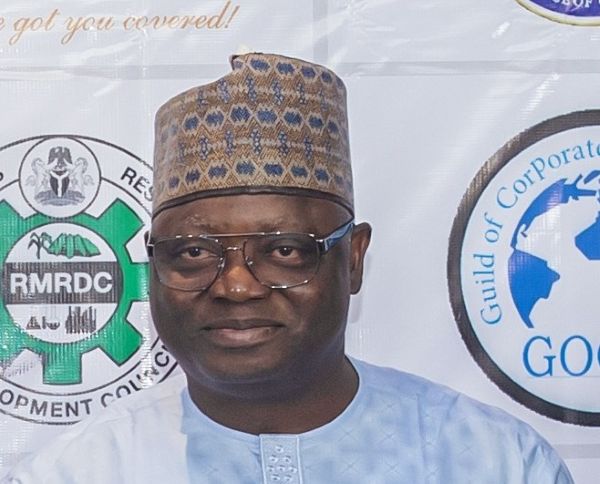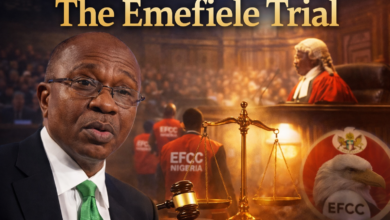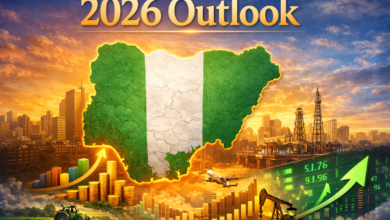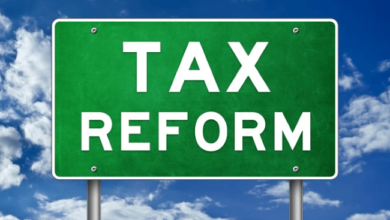
At a time when Nigeria’s democracy is still grappling with the disconnect between campaign promises and governance realities, the National Orientation Agency (NOA) has called on the Nigerian media to rise above routine political coverage and hold aspiring leaders accountable through rigorous interrogation of their manifestos.
Speaking as a panelist at the 9th Annual Conference of the Guild of Corporate Online Publishers (GOCOP) in Lagos, the Director-General of NOA, Mallam Lanre Issa-Onilu, challenged journalists and editors to adopt a more investigative and analytical approach toward campaign promises, describing it as a civic duty essential to nation-building.
The conference, themed “Reconciling Campaign Promises with Governance Realities: Challenges and Prospects,” provided a fertile ground for examining the credibility gap between Nigeria’s political rhetoric and actual policy delivery.
The Media’s Role in Strengthening Nigeria’s Democracy
Issa-Onilu, a veteran journalist himself, emphasized that media practitioners have the moral and institutional responsibility to scrutinize the manifestos of political aspirants before, during, and after elections.
“Some people present manifestos that are not even theirs,” he noted. “They merely subscribe to their party’s manifesto without understanding its content or implications. As journalists, we often give airtime to entertainment and soundbites while neglecting to question the policy foundations of these aspirants.”
He argued that the health of Nigeria’s democracy depends on a vigilant media capable of filtering populist noise from actionable governance plans. According to him, the era of unverified political promises must give way to data-backed analysis, comparative policy evaluation, and accountability journalism.
Issa-Onilu’s position aligns with the growing global consensus that a democracy is only as strong as its watchdog institutions — particularly a free and probing press. He maintained that until the Nigerian media prioritizes policy scrutiny over personality politics, the vicious cycle of failed promises and public disillusionment will persist.
From Lagos Blueprint to National Policy: The Continuity Narrative
Delving deeper, the NOA boss highlighted that what many Nigerians view as the federal government’s development template is, in reality, an evolution of the Lagos governance model.
“The manifesto of the federal government is the same philosophy that governed Lagos State,” he said. “It is now a national blueprint being implemented at scale.”
This remark, subtly referencing President Bola Tinubu’s long-standing political legacy, underscores the continuity ideology that has shaped Nigeria’s governance architecture since 1999. The statement also reflects how regional administrative successes are often translated into national policy — for better or worse.
However, Issa-Onilu’s point also hinted at a critical weakness: that many politicians recycle old manifestos without tailoring them to new realities, often resulting in governance paralysis and a widening gap between expectation and delivery.
NOA’s Mandate: Rebranding Government Communication
On the role of the National Orientation Agency, Issa-Onilu stressed that NOA’s core mission goes beyond publicity or propaganda — it is about strategic communication and nation-building through credible engagement.
“The NOA’s job is to communicate government policies, projects, and programmes effectively,” he explained. “It’s not the agency that’s broken; it’s Nigeria’s understanding of civic engagement that needs fixing.”
The DG candidly admitted that, before his appointment, he once shared the view that NOA had outlived its usefulness. However, upon assuming office, he discovered a team of passionate professionals committed to the agency’s mission.
“Before I joined NOA, I was among those who said it should be scrapped. But when I got there, I met dedicated staff. The challenge isn’t the agency — it’s how we, as Nigerians, value public institutions,” he said.
He acknowledged bureaucratic hurdles within government ministries and the need for policy synergy among public institutions. Still, he credited President Tinubu’s administration for backing NOA’s renewed drive to promote national unity, civic education, and responsible governance.
BRANDECONOMY ANALYSIS: A Wake-Up Call for the Nigerian Media
The NOA DG’s comments on Campaign Promises resonate as a sharp reminder that Nigeria’s democracy cannot thrive on mere campaign theatrics. For decades, politicians have treated manifestos as formalities — documents produced to satisfy election requirements rather than serve as governance roadmaps.
Media scholars and analysts have repeatedly argued that Nigerian journalism must evolve from event-based reporting to policy-oriented journalism. As Issa-Onilu rightly observed, the media’s watchdog role extends beyond exposing scandals — it includes vetting the feasibility, sustainability, and impact of political promises.
At its core, this is a call for a new journalistic ethos: one that treats campaign manifestos as social contracts, not press releases; as documents of accountability, not decorative literature.
Bridging the Gap Between Promise and Policy
The recurring pattern of unfulfilled promises in Nigeria’s political space points to a structural problem — weak policy alignment between electoral commitments and government priorities.
Experts note that while manifestos outline lofty goals, they rarely include measurable timelines, funding models, or institutional frameworks for implementation. The result is predictable: rhetoric without reform, and aspiration without accountability.
By urging the media to interrogate these gaps, Issa-Onilu is essentially advocating for a new culture of governance journalism — one where questions like “How will this policy be funded?”, “What data supports this projection?”, and “Who benefits from this initiative?” become standard tools in political reporting.
Conclusion: The Road Ahead for Media and Democracy
In an age of disinformation, media polarization, and economic hardship, Issa-Onilu’s remarks are both timely and transformative. For Nigeria to progress, its journalists must evolve into policy interpreters, economic analysts, and public educators — not just headline hunters.
His message is clear: probing political manifestos is not cynicism; it’s patriotism.
If embraced, this could mark a turning point in how Nigerians evaluate leadership — shifting the focus from personality politics to policy-driven governance.












